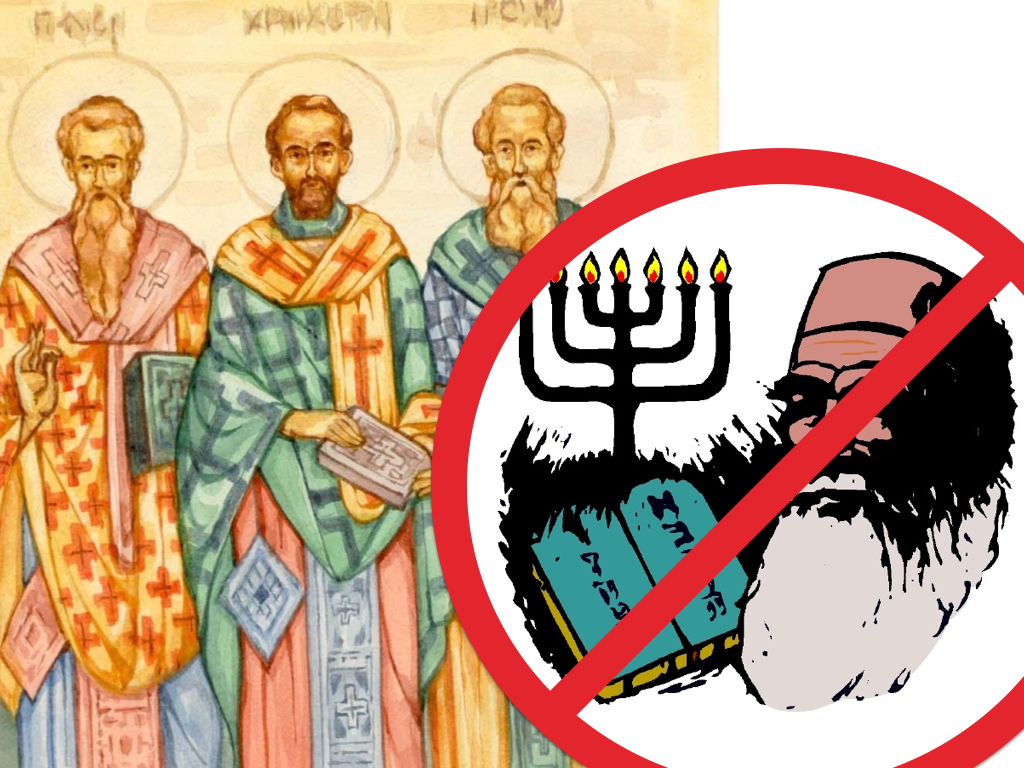Galatians 2:14, To live as a Jew. The Greek word here is Ioudaidzo from which the term Judaizer derives. This is the only occurrence of this work in the Testimony of Yeshua. Biblically speaking, who and what is a Judaizer?
Mainstream Christians label those who believe in the gospel and, at the same time, adhere to the Torah as Judaizers. Is this a correct label and what is the biblical historical origin of this term?
The term Judaizing or Judaizer as the mainstream church understands it to mean is not found in the Bible per se. However, church historians and Bible teachers have applied this term retrospectively to those in the primitive Christian church as well as to modern saints who advocated adherence to the Torah. This is ironic since Paul in many places in his writings advocated Torah obedience to the believers in Rome (who were both Jewish and Gentile) and elsewhere. So while Paul teaches Torah observance on the one hand, many believe that Paul was teaching liberty from the Torah (in book of Galatians, for example) on the other hand. This has led to much confusion about what Paul really believed. Was he conflicted in his beliefs in that it seems that he was both for and against the Torah? Or maybe he gradually changed his opinion from pro-Torah to anti-Torah. This latter proposition seems unlikely since Bible scholars tell us that Romans and Galatians were written nearly at the same time. So the term Judaizer as used by modern Bible scholars seems to be a canard—a fabricated concept or one built on a false premise.
The fact is that the phrase “to become Jewish” from which the English term Judiazer derives is found only twice in the entire Bible. The first place is in Esther 8:17 where the Greek Old Testament (LXX) uses the Hebrew verb Ioudaizon meaning “to become a Jew,” or “to profess oneself to be Jewish.” It was used in reference to those Persians who suddenly “converted” to Judaism to escape Jewish persecution. The second reference is found in Galatians 2:14 were Paul accused Peter, not of being Torah-obedient, but rather of adhering to non-biblical Jewish traditions, which forbad Jews and Gentiles from eating together. In this verse we find the phrase “to live as do the Jews.” This phrase is the Greek word Ioudaizō meaning “to become Judean, to live after Jewish customs or manners.”
In reality, adherence to these extrabiblical Jewish traditions was Judaizing—a fact that seems to be missed by the majority of Christian scholars from the second century to this day! The issue here was not whether YHVH’s Torah-law was still binding on Christians, but whether Christians needed to follow non-biblical or extra-biblical—in some cases, even unbiblical—manmade traditions. This would be like telling a person who has just become a Christian that celebrating Christmas and Easter are required to be a Christian, when, in fact, the Bible requires no such things. Such a requirement would be an extra-biblical, manmade traditions. Such was what Paul was accusing Peter of doing.
Religious systems trying to foist their unbiblical requirements upon their adherents is not a new thing, for Yeshua accused the learned Jewish religious leaders of his day of doing the same thing, that is, of “making the word of Elohim of no effect through your traditions which you have handed down” (Mark 7:15). Earlier he said, “You reject the commandment of Elohim, that you may keep your tradition” (Mark 7:9).
In reality, what Paul was fighting against was not YHVH Elohim’s Torah-laws, which in numerous places in his writings (which we have chronicled and discussed elsewhere) he advocated, defended and claimed to follow himself. Rather he is rejecting the idea that one can be saved by their own good works including circumcision.
After all, this issue was the focus of the debate of the first Jerusalem council in Acts 15. In verse one of this chapter we read, “And certain men came down from Judea and taught the brethren, “Unless you are circumcised according to the custom of Moses, you cannot be saved.” The fact is that circumcision was never a biblical requirement for salvation going back to Abraham (see Paul’s discussion of this in Romans 4 where he shows that Abraham was justified by faith, not by works, including circumcision). Yet over the course of time, and due to a misunderstanding of the Torah law requiring all males to be circumcised before taking Passover, it became the belief among some Christians that circumcision is a prerequisite for salvation. This and other unbiblical Jewish traditions that were hindering the spreading of the gospel and Gentiles from coming to faith in Yeshua is what Paul was vigorously combatting in his Galatians epistle and elsewhere. For Paul, it never was about Torah-obedience as the mainstream Christian church has made it out to be. To say that it is a bald-faced lie, and the mainstream church has been peddling this lie for nearly 2,000 years! It is time that people wake up and realize this.
In combatting the false notion that circumcision, for example, must be a prerequisite to salvation, Paul opposed this idea in a grand and logical step-by-step manner in his epistle to the Romans, and again in his epistle to the Galatians in a knock-out-the-opponent-quickly manner.
So if we are to apply the term Judaizer to anyone, it must be applied to those advocating a works-based salvation formula, not to those who teach that salvation is by grace alone through faith in Yeshua with the spiritual fruits of conversion being love toward Elohim and one’s fellow man as defined by the Torah—something this author strongly advocates.
Sadly, the fundamental truth of who a so-called Judaizers really were seems to have been missed by the majority of early church fathers and modern mainstream church theologians and leaders, who have continued to repeat their predecessors’ anti-Semitic and anti-Torah theological viewpoints. These traditions of men have been handed down to them by many second century Torah and Jew hating church fathers, incorporated into Roman Catholic theology and subsequently picked and peddled by the Protestants to this day. For one to now go against these institutionalized manmade and unbiblical traditions by which the word of Elohim has been made of none effect carries with it serious implications. These include excommunication from various Christian institutions, rejection by one’s peers, and most importantly, many ministers would lose their financial security. This means that many pastors, Bible teachers and countless others who make their living in Christians ministry sucking off the tit of Christianity Inc. would be forced to go out and get a real job like the rest of us! As Scripture declares, “the love of money is the root of all kinds of evil” (1 Tim 6:10).



